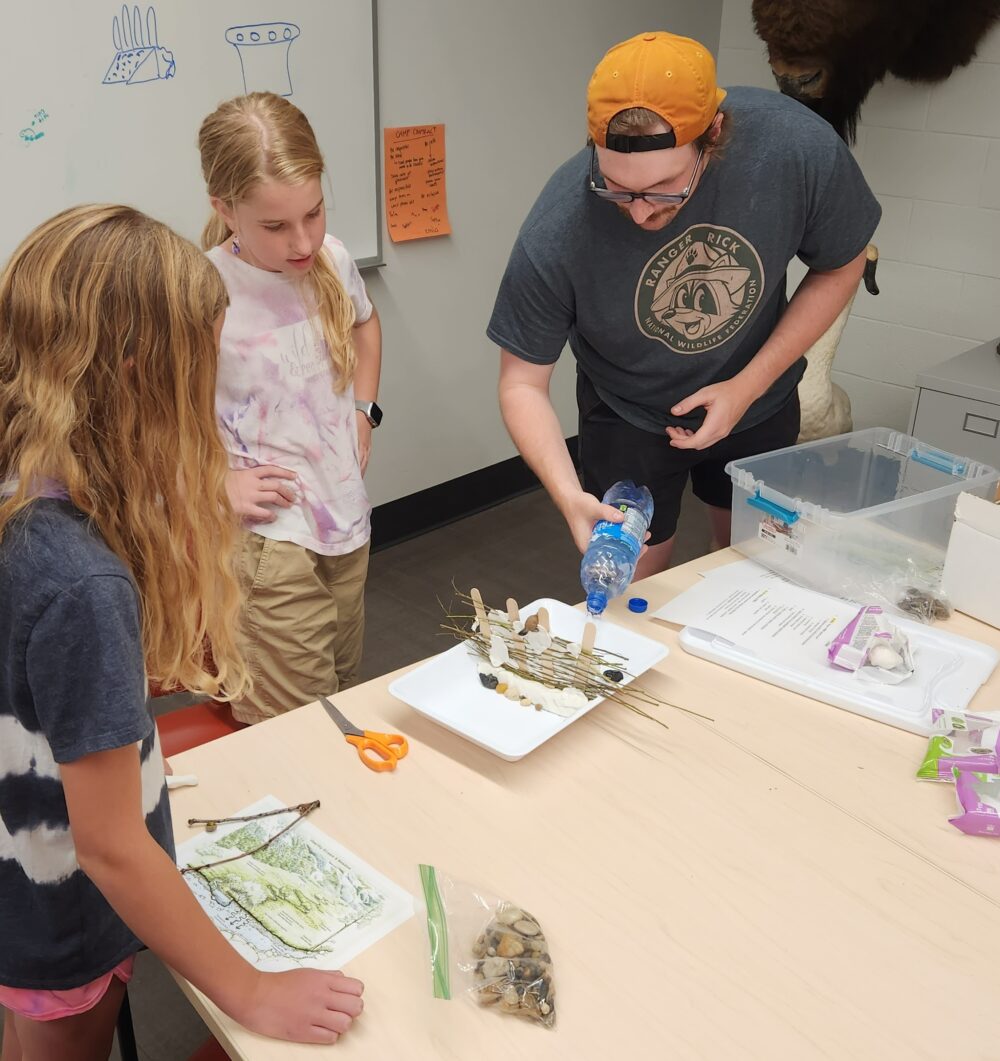We have much more to do and your continued support is needed now more than ever.
NYC Students Showcase Their Ideas for Creating Resilient Schools & Communities
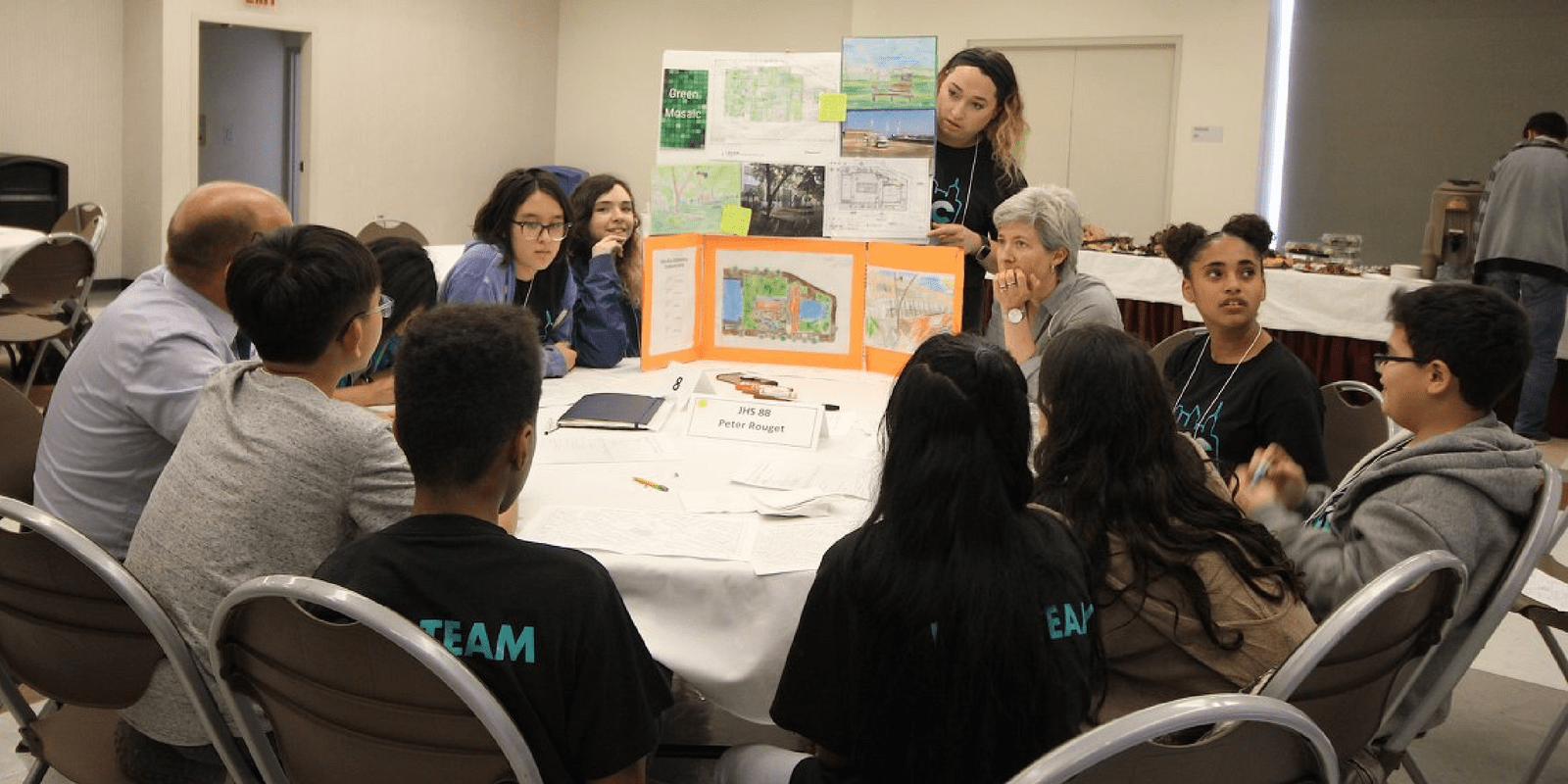
National Wildlife Federation’s Eco-Schools USA provides students, prekindergarten through 12th grade, the opportunities to learn about creating a more sustainable future for people and wildlife. The Resilient Schools Consortium is a climate literacy program in seven Brooklyn schools through a partnership that includes the National Wildlife Federation (NWF), Brooklyn College, the New York City Department of Education, the Science and Resilience Institute at Jamaica Bay, and New York Sea Grant. The National Oceanic and Atmospheric Administration funds the program in six public middle and high schools – all NWF Eco-Schools: IS 239 Mark Twain School, IS 228, MS 88, John Dewey High School, Edward R. Murrow High School and Rachel Carson High School. They are using a novel RiSC climate science and resilience curriculum – for both in-school and after-school programming – that was written by two MS 88 STEM (Science, Technology, Engineering, Math) teachers.
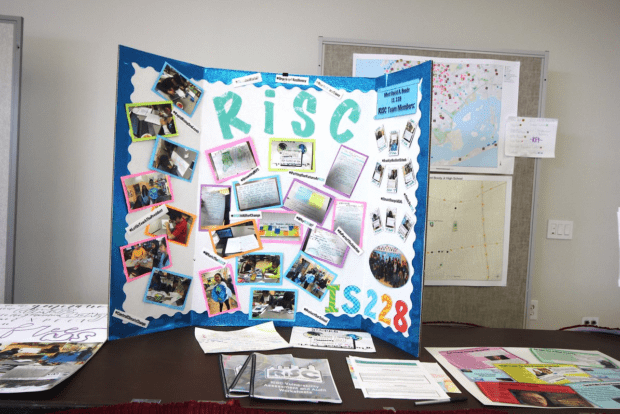
In June 2018, Brooklyn College hosted the first of two Resilient Schools Consortium Student Summits as a forum for close to one hundred students to showcase their work. Six middle and high school teams – all from coastal Brooklyn schools – dove into climate literacy and hands-on projects over the last year. Students also worked on assessing their schools and communities’ vulnerabilities to extreme weather, storm surge, coastal flooding, sea level rise, and extreme heat, conducting what’s known as a vulnerability audit. At the summit, students displayed their projects in a showcase. Each school set up a display of their work for attendees to view, including videos, handmade infrastructure models, posters, and maps.
After students had the chance to show their work, keynote speeches were made by Dana Kochnower from the Mayor’s Office of Recovery and Resilience, and Meredith McDermott Director of the NYC Department of Education’s Office of Sustainability. 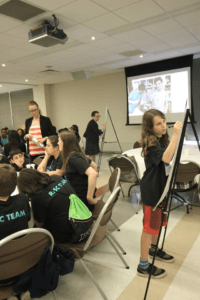 Rachel Carson High School Principal Ed Wilensky also came up to speak, and expressed his appreciation for the program. He spoke about how he visited his school’s boiler room with Rachel Carson’s RiSC student team – which he hadn’t seen since Hurricane Sandy devastated the school – and he encouraged all of the students to stay engaged with the program and environmental education.
Rachel Carson High School Principal Ed Wilensky also came up to speak, and expressed his appreciation for the program. He spoke about how he visited his school’s boiler room with Rachel Carson’s RiSC student team – which he hadn’t seen since Hurricane Sandy devastated the school – and he encouraged all of the students to stay engaged with the program and environmental education.
Students from each school presented a summary of their vulnerability audits. Many of the school communities were damaged by Hurricane Sandy, and their audits showed that their schools are still vulnerable to flooding and extreme weather events.
Each school team was paired with a resilience professional who gave them feedback on their ideas for a school-based resiliency project that would mitigate a problem they uncovered through their vulnerability assessments.
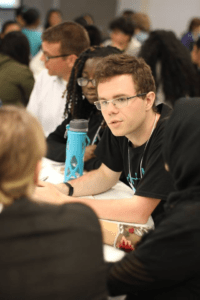
This September, the schools will begin to use the NWF Eco-Schools program framework and Climate Change Pathway to help plan and execute small-scale school resilience projects.
Each Resilient Schools Consortium team will receive a $2,500 grant towards a project. Some of the students’ project ideas included plans for green roofs, rain gardens or bioswales, (curbside gardens that use water-tolerant native plants to help mitigate storm surge), cleaning out clogged storm drains, adding sensors to their school’s light system, and campaigns to educate their community about climate change.
Resilience projects like these not only have positive effects on the local environment, they also create a ripple effect that encourages biodiversity more broadly.
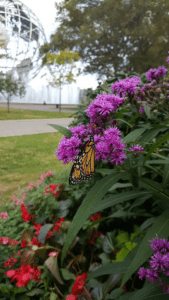
For example, NYC bioswales have been shown to provide small habitats for monarch butterflies.
Organizations and agencies that provided staff for resilience projects brainstorming sessions included:
The Federal Emergency Management Agency
The Mayor’s Office of Recovery and Resilience
The National Oceanic and Atmospheric Administration’s Office of Climate Education
The New York City Department of Environmental Protection
The Department of Citywide Administrative Services
SCAPE Architecture
NYC Department of Education’s Office of Sustainability
NYC Department of Education’s Office of Emergency Management
The Science and Resilience Institute at Jamaica Bay
The Nature Conservancy
National Wildlife Federation
Brooklyn College
The Wild Center
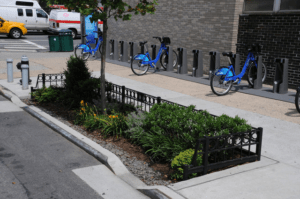
RiSC’s NOAA grant officers also came down from Washington, DC to attend.
Feedback was extremely positive from students and resilience professionals alike. At the end of the day, a few came up to give closing remarks. Hope and optimism were themes in these remarks. Andrew Martin of FEMA’s NYC office said:
“I expect to come back and see these great projects realized in the next couple of years, and I’m really looking forward to that.”
One student came forward to give thanks to attendees and share his thoughts on the impacts of the RiSC program:
“I think that this is the beginning of something huge.”
Michael Luppino, a core RiSC teacher from John Dewey High School, expressed appreciation for all the students in attendance:
“To every student in this room: you’re more knowledgeable than the average citizen on climate, so give yourselves a round of applause right now. I have to say, as a science teacher of biology this program has really kindled my passion for environmental science, so much, it’s such an incredible thing.”
The RiSC project’s second year, with the same student teams, launches in the Fall of 2018.
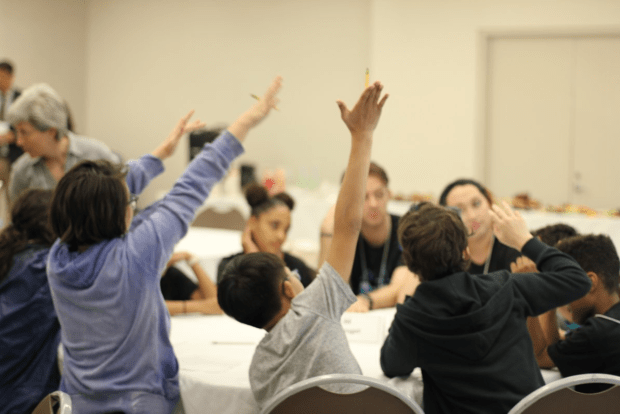
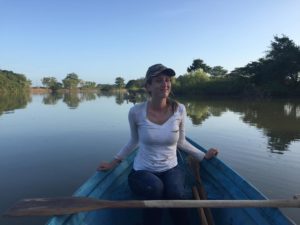 Thank you to our guest blogger: Alexandra Gillis is a graduate student at Brooklyn College focusing her studies on land use in New York City and how it affects the urban mosquito population. She is currently on the assessment team of the Resilient Schools Consortium (RiSC), an in-school and after school climate and resiliency program for middle school and high school students.
Thank you to our guest blogger: Alexandra Gillis is a graduate student at Brooklyn College focusing her studies on land use in New York City and how it affects the urban mosquito population. She is currently on the assessment team of the Resilient Schools Consortium (RiSC), an in-school and after school climate and resiliency program for middle school and high school students.




















